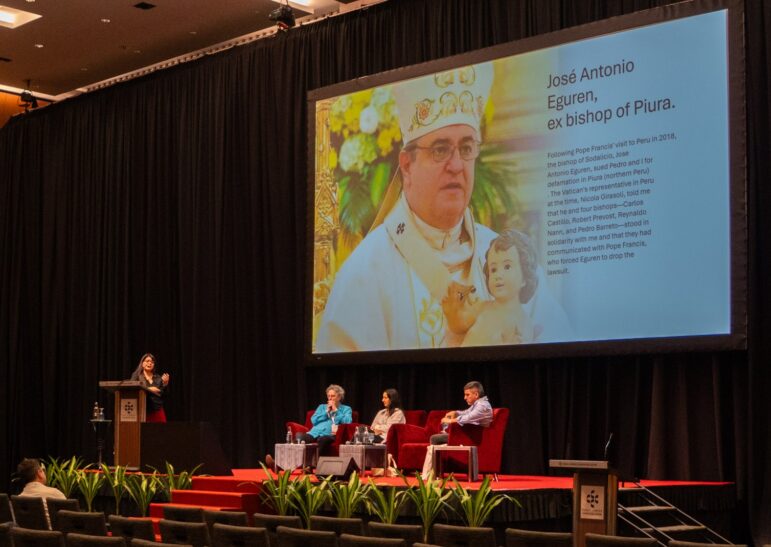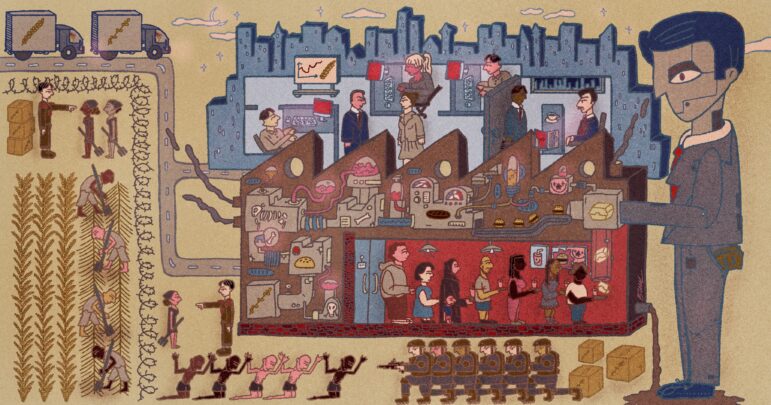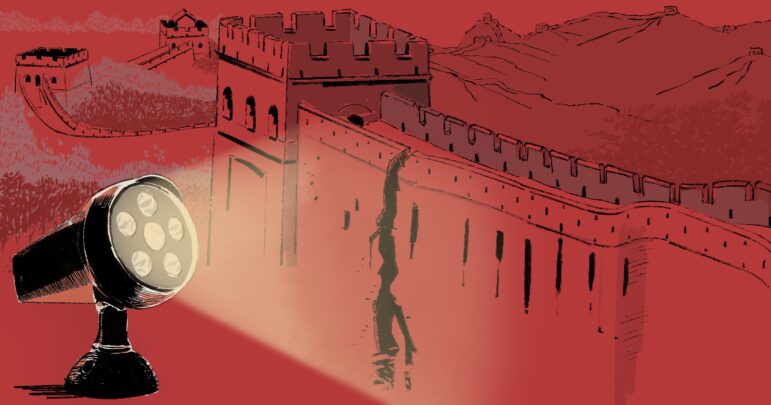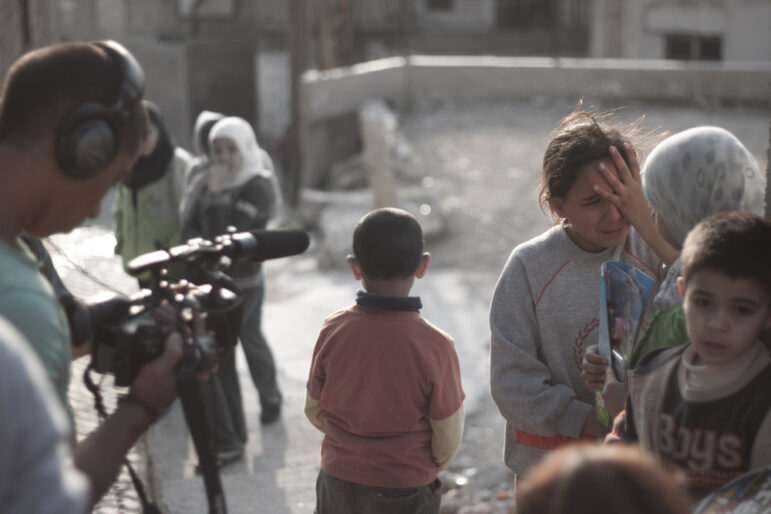

Paola Ugaz (left) discusses her investigation into a powerful Catholic organization in Peru during the GIJC25 panel on covering religious groups and cults. Image: Zahid Hassan
Religion is an intrinsic part of people’s lives — influencing communities, countries, and sociopolitical developments. But these very factors make reporting on religions and faiths challenging.
Journalists from New Zealand, Colombia, and Peru spoke at the 14th Global Investigative Journalism Conference (GIJC25) in a session titled “Uncovering Stories Connected to Religious Groups” about how to find stories and angles when reporting on issues linked with religious groups and faith-based cults.
Learn the Language
A big challenge when reporting on religion is terminology, said Anusha Bradley, an investigative reporter with Radio New Zealand. “Learn the lingo of the religion. You have to understand what they are saying,” she explained. Religions tend to have their own terminology and words, with specific meanings that may be unfamiliar to someone trying to investigate them for the first time.
“Understand the top-down structure,” she added. Many religions operate as a business, and it helps to understand the hierarchy and the way the institution is constructed. It is also important to understand power, control, and coercion — and how they are linked with the religious institution.
Bradley cited her reporting on the impact of shunning and child protection policies among Jehovah’s Witnesses in New Zealand. Her investigation uncovered how the religious group controls access to justice for victims of various forms of abuse. “There would be victims of domestic abuse, and they were told to pray harder,” she said. “Sexual abuse would require the presence of two witnesses [to confirm that the abuse occurred]” — practices that effectively blocked accountability and justice for victims and protected abusers.
Fighting for Access
Colombian journalist Juan Pablo Barrientos has been facing harassment for close to a decade for his extensive reporting and investigation into reports of the sexual abuse of minors in the Catholic Church in his home country.
Barrientos was attempting to analyze how the Catholic Church, as an important national institution in Colombia, handled cases of priests accused of pedophilia. The title of Barriento’s investigation, “The Secret Archive,” refers to a section in the Code of Canon Law — which governs the Catholic Church — that decrees the establishment of an archive that is to be locked up and “protected most securely,” containing records of what the Canon describes as “criminal cases in matters of morals,” including a brief summary of what occurred.
“This, to me, is a criminal confession,” said Barrientos. This archive was critical to his investigation. The Catholic Church blocked access for years, and Barrientos and another journalist took their fight to access these church records in Colombia to court.
“Article 44 of the Constitution of Colombia says that the rights of minors prevail over all other rights,” said Barrientos. “The court argued that this is private information. But [we] were not asking for medical records, for financial records, for the sexual orientation of the priests. [We were] asking for information on crimes committed against children,” he added.
In June 2025, the Colombian Constitutional Court upheld the journalists’ rights to access — based on the constitutional principle of child protection — information about priests in the context of investigations into alleged sexual abuse.
Paola Ugaz, the Peru correspondent for the Spanish daily newspaper ABC, has for years investigated allegations of sexual, physcial, and psychological abuse against minors by Sodalicio Christianae Vitae (SCV), a powerful Catholic organization founded in Peru in the 1970s. After a book she worked on with former Sodalicio member Pedro Salinas, titled “Mitad Monjes, Mitad Soldados” (“Half Priests, Half Soldiers”) was published in 2015, she experienced retaliation — including various forms of targeted harassment and a criminal defamation complaint by people associated with SCV.
In April 2025, the Vatican formalized the dissolution of SCV.
Follow the Documents
The “Aha!” moment can come at any time during investigations, the panelists said, and shared a few general pointers for investigating powerful religious groups.
Bradley suggested checking the document trail. “The congregation would document the meetings they had, and the secretary would file everything” about those discussions within the church, said Bradley. “Many members of the Jehovah’s Witnesses who retired or left [the church], took these documents with them.” She also noted that “every victim has a story… so it’s important to show a pattern by exposing the system.”
Barrientos urged journalists not to be afraid to ask questions of the Catholic Church in their own cities: “Ask for that secret archive that is in every one of your cities… Every city that has a Catholic Church… they have these secret archives.”








